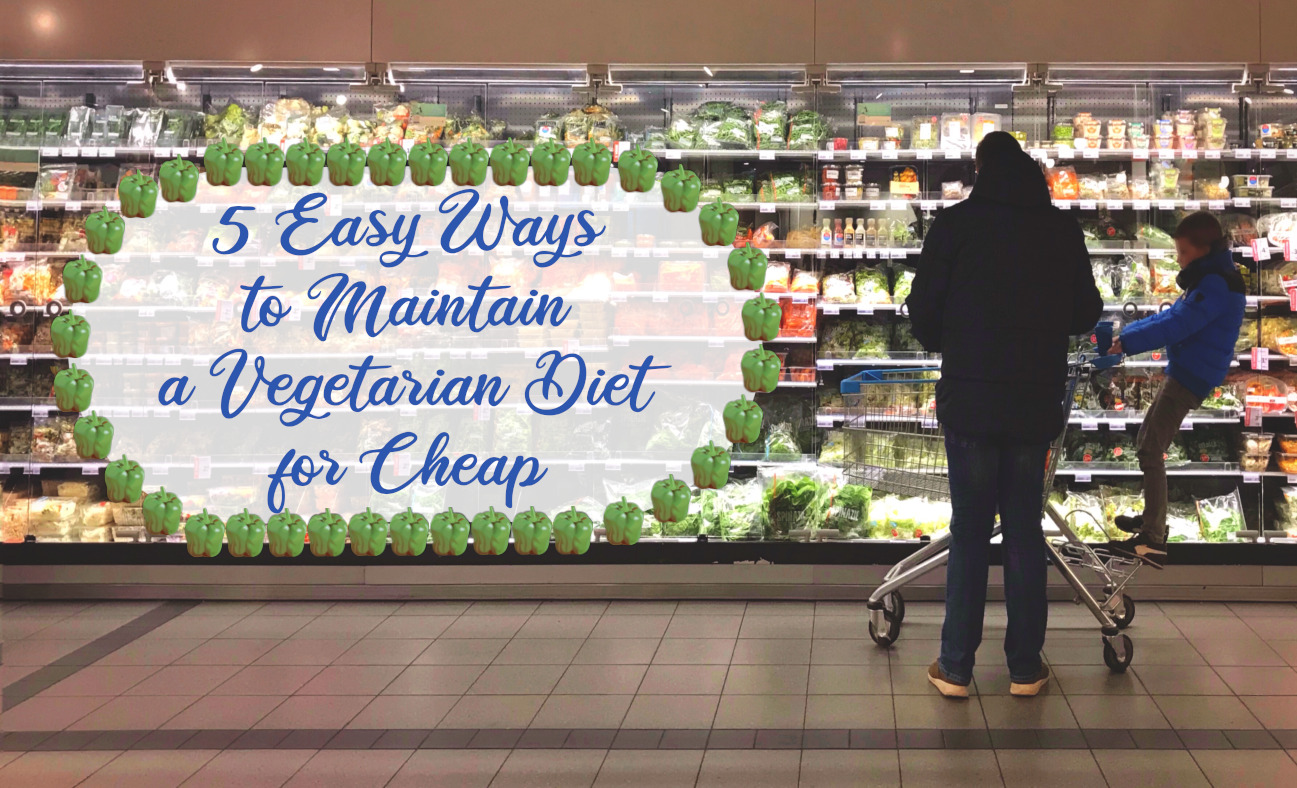Introduction
Because so many vegetarian foods on the market today are more expensive than conventional ones, people tend to stray away from the vegetarian diet. However, that doesn’t mean it’s totally impossible to be both vegetarian and budget-friendly. All you need to do is do a little exploring and experimenting with our five easy tips below.
Don’t Shop at Whole Foods or Other Healthy Markets
Supermarkets like Whole Foods and Gelson’s might be like taking a walk through a candy store for vegetarians, but it’s going to cost you loads more money. If you really want to pinch pennies, the trick is to find vegetarian options in your usual grocery store.
Trust us, it’s a lot easier than you think! Many budget-friendly supermarkets like Costco, Trader Joe’s, and Walmart have started offering lots of food options for vegetarians. And while they don’t carry as much as Whole Foods does, you can’t really afford to be choosy when you’re on a tight budget.
You Don’t Have to Buy Everything Organic and Non-GMO
Listen, we know that organic and non-GMO products might look more appealing to you, but it’s not the end of the world if you choose to go for the cheaper option. The fact that you’re already choosing to abstain from meat is doing a lot for the environment. At the end of the day, you still need to keep your body happy and healthy with foods that are good for you, even if they aren’t the healthiest options.
Some foods don’t even need to be bought organic. Many fruits and vegetables like avocados, pineapples, corn, and asparagus have tough skins and enzymes that make it harder for pesticide residues to linger. Additionally, some studies have shown that buying organic over non-organic might not have a huge difference at all, according to the Independent.
Know the Grain-Green-Bean Formula
One of the cheapest and easiest types of vegetarian meals you can make consists of three foods—grains, greens, and beans. It’s literally that simple, and it’s pretty versatile too.
For your grains, anything carbohydrate-laden will work. Think rice, quinoa, couscous, pasta, or tortillas—anything that will give you energy for the rest of the day.
Greens are where you add in your vegetables, packed with vitamins and minerals. They help your body prevent debilitating conditions like obesity, heart disease, cancer, diabetes, high blood pressure, mental decline, and more.
Lastly, beans are where you add protein that helps you grow and maintain muscle mass. As a vegetarian, obviously meat is firmly out of the question—instead, you can replace it with yummy substitutes like tofu, tempeh, chickpeas, lentils, and all kinds of beans.
Follow the grain-green-bean formula and you’re sure to have a meal that’s well-balanced and healthy.
Grow Your Own Herbs
A few handfuls of your favorite herbs may not seem expensive, but costs can quickly rack up since they need to be replaced often. If you grow your own herbs instead, on the other hand, you can save so much money since the herbs you pick will just grow back in a few months. You also have the bonus of picking fresh herbs every time!
Luckily, many herbs are easy to grow, even if you don’t have a garden. From my experience as a city-dweller in a tiny apartment, basil, oregano, chives, and rosemary are the easiest herbs to grow.
Make Everything at Home
This idea doesn’t just apply to vegetarians—it applies to everybody who eats food! You can save hundreds, even thousands, of dollars if you just decided to skip prepackaged foods and meals and whipped up something of your own at home.
We know that cooking and cleaning up afterward can be tough, especially after a busy day at work. However, you can meal prep during the weekends or in your spare time instead. Cook a huge batch of food, divide them into servings, refrigerate or freeze, then reheat as necessary whenever you’re ready to eat.
And instead of buying almond milk or sunflower butter or any kind of plant-based foods, why not make some of your own? There are plenty of recipes online for you to choose from. Not only will this help you save money, but it’s also a great way of spending time with your loved ones in the kitchen.
Conclusion
While being vegetarian is usually more expensive than being an omnivore, it doesn’t always have to be—this article proves it!
And think about it this way, isn’t the little extra money you spend on vegetarian food worth it if your body is happier and healthier? Isn’t that extra dollar or two you shell out worth letting our beautiful planet breathe? Isn’t a little more time spent grocery shopping worth the life of a cow, chicken, or pig?
You decide.
